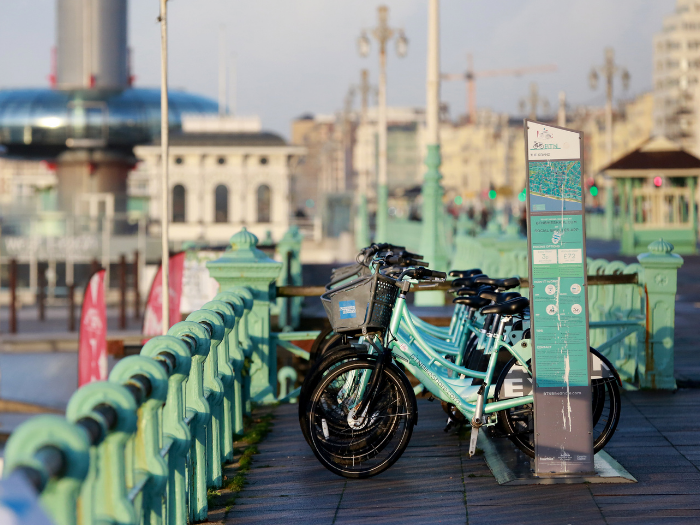
The cost of an annual membership to Brighton’s BTN BikeShare scheme will change next month.
From Monday, 17 January, the price of an annual membership will increase by £5 from £72 a year to £77 a year. Corporate discounts on annual memberships will also rise by £5.
This is the first time since the scheme opened in September 2017 that the cost of annual membership has increased.
This still means that users with an annual membership can still enjoy 30 minutes of ride time for just 21p a day. This still represents excellent value for money.
The price of the scheme’s Easy Rider payment option remains unchanged at 3p per minute plus a £1 unlock fee.
BTN BikeShare remains one of the most popular forms of travel around Brighton & Hove for residents, visitors and commuters with a choice of 563 bikes docked at 86 hubs across the city.
In the 12 Months to 31 October 2021, BTN BikeShare bikes were rented more than 336,000 times and covered over 811,000 miles.
Since the scheme began, users have cycles over 3.4 million miles
A planned reorganisation of the scheme will also see the introduction of electric bikes in 2023.









Remind us how much this scheme is costing the local taxpayers per annum.
I don’t know if there are more recent figures, but there are some cost and revenue details in this council document https://present.brighton-hove.gov.uk/documents/s159921/BTN%20Bikeshare%20Reorganisation.pdf
Actually, by far the most popular way of travelling around Brighton and Hove is to walk. Unfortunately the most environmentally friendly method of getting around is also the most neglected by Brighton & Hove council.
When is something going to be done to make our pavements safe and pleasant to walk on…
The actual costs and income of the current scheme are a little unclear from the report that Matt Oakes linked to above, bearing in mind it is about expanding the bike fleet to include E-bikes. It does look like a loss maker even with any modest uplift in income. A FOI request would clear up Mike Beasley’s good question above, but it is predicted to never be cost neutral or a cost.
There seems to be two points really unclear from the report 1) The likely loss of rental income on existing manual bikes (investment) as the report seems to assume that all e-bike renters will be new customers and 2) the cost of installation of chargers for said e-bikes.